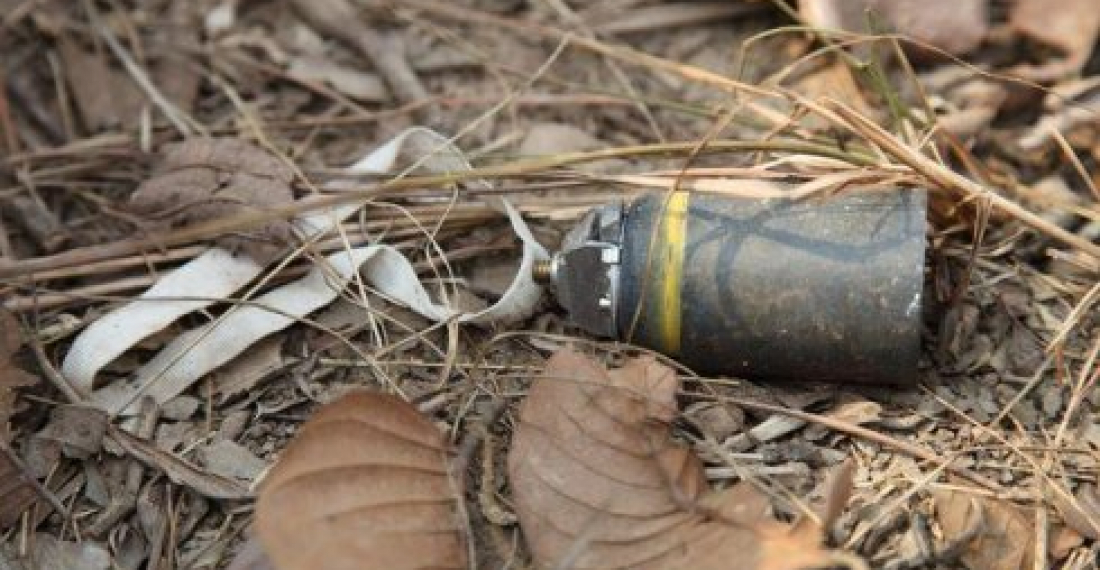The use of cluster munitions will have long-term consequences for peace and for the safety of citizens in the region for a long time, says William Murray in this analysis researched and written for commonspace.eu
The fighting between Armenians and Azerbaijanis in the South Caucasus continues despite a cease fire brokered by Russia over the weekend.
Whilst this in itself is very concerning for the prospect of peace in the South Caucasus, what's more are accusations by both sides of the use cluster munitions, in some cases targeting civilian areas. Whilst it goes without saying that any intentional targeting of civilians is reprehensible, the use of cluster munitions in this conflict in and of itself will have long-term consequences for peace and for the safety of citizens in the region.
A cluster bomb or munition is an air-dropped or sea-/ground-launched explosive weapon designed to open mid-air, scattering tens to hundreds of smaller explosive bomblets over a wide area. The first cluster bombs emerged during the second world war for use against both military and civilian targets. They were then used extensively throughout the wars of the 20th century due to their wide area of effect and brutal effectiveness in killing personnel and destroying vehicles. When used, bomblets from a single cluster bomb can cover areas the size of several football pitches, killing or seriously maiming anybody in the vicinity.
However, despite being a weapon of war, year on year it is shown that civilians account for the vast majority of cluster-munition casualties. The Cluster Munition Monitor's 2019 report showed that 99% of confirmed global casualties of cluster bombs in 2018 were civilians, with children accounting for over half of these. Cluster munitions not only cause immediate devastation to a targeted area, but submunitions that fail to explode can lie dormant, posing a fatal threat to those that come across them long after fighting ends. Whilst it is difficult to discern an exact proportion of bomblets that fail to explode, reports by the International Committee of the Red Cross suggest that with older models it can be as high as 40%. In 2017, the Pentagon's Policy on Cluster Munitions stated that the US was to back away from its self-imposed 1% maximum fallibility requirement due to the lack of 'enhanced and more reliable munitions [...] that meet the standards of this policy'. From this, one can infer that even the most advanced cluster munitions can present dangers long after their use.
In light of the atrocities of cluster munitions in the 20th century, in 2008 the Convention on Cluster Munitions (CCM) was established to prohibit the use, transfer and stockpiling of cluster bombs. There are currently over 100 states party to the treaty, but none of the three South Caucasus countries are amongst them. Whilst neither Armenia nor Azerbaijan are signatories of the CCM, the use of cluster munitions against civilian targets is outrightly illegal under international law.
In a statement last week, Denis Krivosheev, Amnesty International's acting Head of Eastern Europe and Central Asia, condemned reports of the use of cluster munitions in the current conflict, asserting:
"The use of cluster bombs in any circumstances is banned under international humanitarian law, so their use to attack civilian areas is particularly dangerous and will only lead to further deaths and injuries."
Amnesty International has called on all sides to the conflict to fully respect international humanitarian law and for Armenia and Azerbaijan to become parties to the CCM.
Similar sentiments were expressed on Friday (9 October) by the UN High Commissioner for Human Rights, Michelle Bachelet:
"The use of such munitions should stop immediately. I also urge Armenia and Azerbaijan to join the more than 100 States that have ratified the Convention on Cluster Munitions which comprehensively bans their use."
In 2019 we started the Landmine Free South Caucasus campaign in order to tackle the scourge of landmines and unexploded remnants of war across all the countries of the South Caucasus. Before the current upheaval, approximately 157km2 of the region was contaminated with landmines and unexploded ordinance, threatening the lives of innocent civilians alongside innumerable economic and agricultural costs. The use of cluster munitions in the current fighting will only exacerbate this problem, whether civilians are killed as a direct result of bombing or as a delayed consequence of the deadly remnants left by their use.
In no uncertain terms, the use of such weapons by either or both sides must continue to be unequivocally condemned by the international community. Beyond the illegal and morally unacceptable nature of the use of cluster munitions against civilians, and regardless of the outcome of the current fighting, Armenians and Azerbaijanis are geographic neighbours and will, at some point, have to find a way to peaceful co-existence. When the current fighting comes to an end and it is time to sit around the table, the use of cluster munitions will continue to pose a threat to the innocent. Their remnants will be a fatal hangover of war, prolonging grievances and undermining the public acceptability of any mutually negotiated peace agreement. The use of these weapons in general - and especially on civilian populations - make the prospect of peace more difficult, ensuring the intractability of a conflict that benefits neither Armenia nor Azerbaijan.
source: This article was researched and prepared for commonspace.eu by William Murray, Project Officer and Coordinator at LINKS Europe in The Hague, and coordinator of the campaign, Landmine Free South Caucasus.
Photo: Close-up of artillery-delivered M42/M46 DPICM submunition found in April 2011 in Cambodia (Stéphane De Greef, Landmine and Cluster Munition Monitor)






